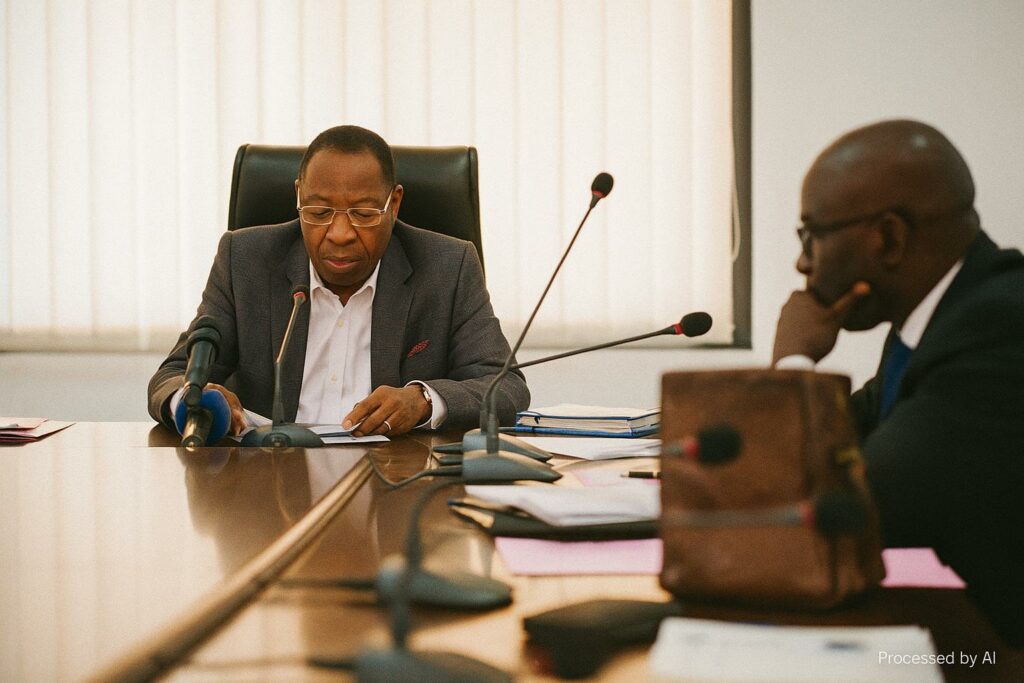Strategic Broadening of the Domestic Elite
The Congolese Football Federation, Fécofoot, has formally ratified a transition from fourteen to sixteen clubs in its flagship competition, the national Ligue 1, for the 2025-2026 cycle. Endorsed on 19 July during an Executive Committee conclave, the decision is portrayed by officials as a calibrated response to two seasons disturbed by pandemic-related postponements and fiscal tightening that truncated lower-division calendars (Fécofoot communiqué). The temporal alignment with the continental schedule, set for a 15 September kick-off, is intended to consolidate performance metrics and heighten the league’s commercial allure.
Exceptional Promotion Pathways
Red Star, dominant in Zone A, and Kouilou Football Académie, pace-setter in Zone B, secure automatic elevation and embody the federation’s stated ambition to reward sporting merit despite structural disruptions. A neutral-venue play-off will allocate the final berth to either Racing Club de Brazzaville or Association Sportive Ponténégrine, both runners-up in the bifurcated Ligue 2. By centralising the decisive fixture, Fécofoot seeks to mitigate regional arbitration pressures and affirm procedural transparency, a point underlined by President Jean Guy Blaise Mayolas during the session’s opening address.
Safeguarding Competitive Integrity in Ligue 2
While the elite tier expands, the second division retains its dual-zone, fourteen-club architecture. Federation technicians argue that preserving this configuration safeguards travel-cost equilibrium for provincial sides and sustains talent pipelines in a fiscally prudent manner (interview, sports economist at Université Marien Ngouabi). Fécofoot’s regulatory unit has simultaneously revived compliance audits on club licensing, focusing on financial disclosure and youth-development benchmarks aligned with CAF directives.
Elevating the Women’s Game
Conscious of CAF’s insistence on gender-inclusive progress, the Executive Committee validated a play-off model to crown the national women’s champion, whose eventual continental representation hinges on meeting coaching and infrastructural licensing thresholds. The decision follows successive postponements of the Coupe du Congo Féminine and echoes the Ministry of Sports’ broader objective to harness women’s football as a vector of societal cohesion (Ministry press briefing, 22 July).
Youth National Teams Await Regional Clarification
Both U-17 and U-20 women’s national selections, the Diables Rouges Dames, remain in limbo regarding the Fatshi Cup calendar, an invitational tournament expected to sharpen competitive readiness ahead of CAF qualifiers. Technical director Cédric Makouta indicates that provisional micro-cycles at the Ignié Technical Center are designed to maintain physiological baselines until dates are confirmed by organisers in Kinshasa.
CHAN Preparations and Passport Diplomacy
The domestic-based men’s squad continues a closed-door residency at Ignié, prioritising tactical automatisms for the 2026 African Nations Championship. Yet administrative bottlenecks persist: several prospective call-ups are still awaiting biometric passports, a prerequisite CAF has pegged to the 23 July 2025 registration deadline. In a bid to circumvent delays, Fécofoot has liaised with the Directorate of Civil Documentation, underscoring the tournament’s visibility for Congo-Brazzaville’s public diplomacy. Friendly negotiations with the DR Congo Leopards signal a renewed sporting détente across the Congo River, even as earlier invitations to the CECAFA event in Arusha and the Douala mini-tournament were forfeited owing to travel documentation constraints.
Institutional Outlook and Governance Milestones
Looking beyond the pitch, Fécofoot has scheduled its Ordinary General Assembly for 20 September, an arena where auditors will dissect budget execution, sponsorship inflows, and compliance with FIFA Forward mandates. Analysts in Brazzaville view the meeting as an inflection point for realigning strategic objectives with the government’s “Plan National de Développement 2022-2026”, which emphasises youth empowerment and international visibility through sport (government policy paper). The federation’s leadership projects confidence that the expanded league, coupled with fortified national teams, will energise domestic spectatorship, attract diasporic investment, and reinforce Congo-Brazzaville’s stature within the Central African athletic constellation.

